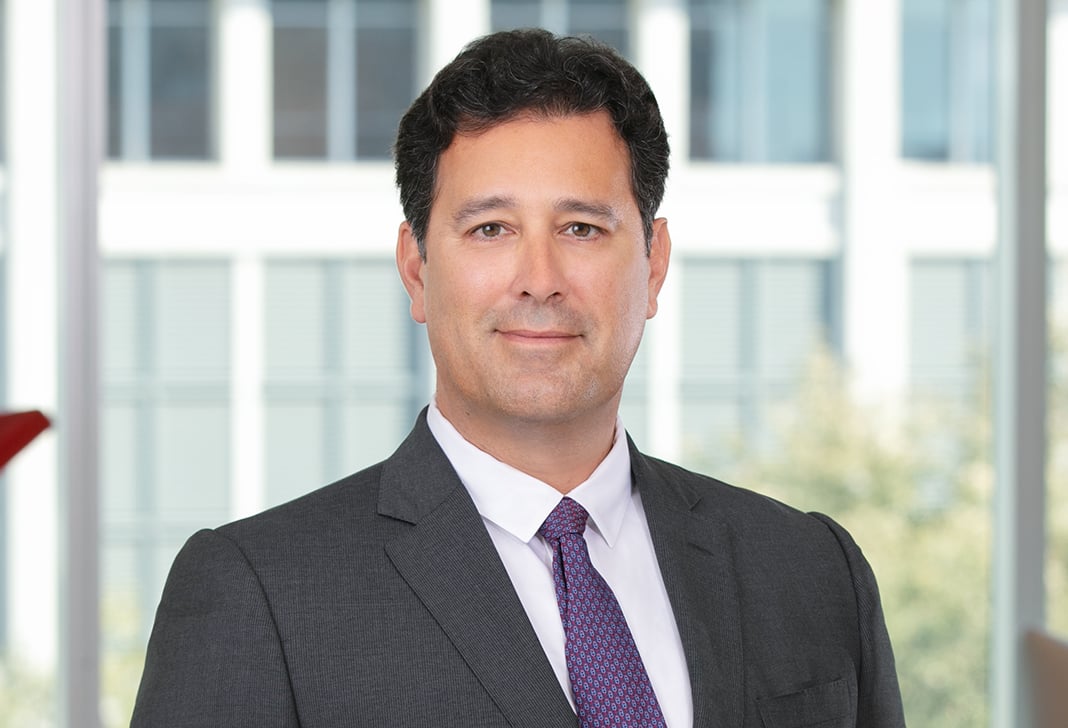
Business Restructuring Review Vol. 24, No. 4 | July–August 2025
IN THIS ISSUE
Secured Lenders Win Victory in Sanchez Bankruptcy
The Ad Hoc Group of Senior Secured Noteholders and DIP Lenders (the "Ad Hoc Group") obtained a unanimous judgment in their favor in an appeal following Sanchez Energy Company's long-running, hard-fought bankruptcy case. Once the decision becomes final, it will provide the Ad Hoc Group with shares of reorganized Sanchez worth approximately $700 million. [read more …]
New York Bankruptcy Court Examines COMI for Purposes of Chapter 15 Recognition of Foreign Restructuring Proceedings Involving Multinational Companies
In In re InterCement Brasil S.A., 668 B.R. 802 (Bankr. S.D.N.Y. 2025), the U.S. Bankruptcy Court for the Southern District of New York granted a petition seeking recognition under chapter 15 of the Bankruptcy Code of a Brazilian reorganization proceeding involving a group of affiliated debtors, some of which were incorporated in other countries. However, the court concluded that the "center of main interests" of the group's Dutch and Spanish financing affiliates, which had commenced insolvency proceedings in the Netherlands and Spain, was in Brazil. [read more …]
Fifth Circuit Reins in Bankruptcy Court Gatekeeping in Chapter 11 Plans
In Matter of Highland Cap. Mgmt., L.P., 132 F.4th 353 (5th Cir. 2025), stayed pending petition for cert., 2025 WL 1522875 (May 29, 2025), cert. denied and stay vacated, 2025 WL 1621149 (U.S. June 9, 2025), the U.S. Court of Appeals for the Fifth Circuit reexamined the validity of chapter 11 plan exculpation and gatekeeping provisions in the wake of the U.S. Supreme Court's 2024 ruling in the Purdue Pharma chapter 11 cases. The Court had ruled that the Bankruptcy Code does not permit nonconsensual releases under chapter 11 plans that do not pay creditors in full. The Fifth Circuit reversed a district court's order confirming a chapter 11 plan, ruling that the district court failed to narrow the definition of "protected parties" in an exculpation clause of an investment company's plan, which was initially approved in 2021, despite the Fifth Circuit's 2022 decision directing it to do so. According to the Fifth Circuit panel, although bankruptcy injunctions in the form of exculpation provisions are not identical to plan releases, they cannot be used to shield from liability non-debtors that are not legally entitled to releases. In addition, the Fifth Circuit emphasized that gatekeeping "is patently beyond the power of an Article I court under §105 [of the Bankruptcy Code]" if it protects anyone other than the debtor, independent directors, the creditors' committee, and committee members. [read more …]
New York Bankruptcy Court Adopts "Realistic Possibility" Standard for Free and Clear Sales Under 11 U.S.C § 363(f)(5)
Section 363(f)(5) of the Bankruptcy Code allows a bankruptcy trustee to sell estate property free and clear of any competing interest in the property (such as a lien or security interest) if the interest holder "could be compelled, in a legal or equitable proceeding, to accept" a money satisfaction in exchange for its interest. However, courts disagree regarding what circumstances trigger this section. For example, is it enough that such an interest could be eliminated in state foreclosure sale? In In re Urban Commons 2 West LLC, 668 B.R. 42 (Bankr. S.D.N.Y. 2025), the U.S. Bankruptcy Court for the Southern District of New York weighed in on this question. It rejected the narrow view adopted a decade earlier in the same district by the district court in Dishi & Sons v. Bay Condos LLC, 510 B.R. 696 (S.D.N.Y. 2014), but cabined the potentially broader view espoused by some courts (and of concern to the Dishi court) by adopting what it termed a "realistic possibility" standard. [read more …]
Purdue Prohibition of Nonconsensual Third-Party Chapter 11 Plan Releases Does Not Apply to Bankruptcy Asset Sales
The U.S. Supreme Court's 2024 ruling in the Purdue Pharma bankruptcy cases banning nonconsensual releases of non-debtors in chapter 11 plans sent shockwaves through the restructuring community. With one fell swoop, it appeared to upend long-standing practice facilitating successful chapter 11 cases premised upon releases of third parties in exchange for funding to pay creditor claims and achieve confirmation of restructuring or liquidation plans. Since Purdue, courts have been called upon to interpret the scope of the ruling and, in particular, whether it applies outside the context of chapter 11 plans. The U.S. Bankruptcy Court for the Eastern District of Virginia addressed this issue in In re Hopeman Brothers Inc., 667 B.R. 101 (Bankr. E.D. Va. 2025). It joined two other bankruptcy courts in concluding that Purdue simply does not apply to injunctions or releases approved as part of bankruptcy settlements or related asset sales under section 363 of the Bankruptcy Code. [read more …]
Avianca: Second Court Adopts "Billing Date" Approach to Timely Performance of Unexpired Commercial Personal Property Leases in Bankruptcy
Section 365(d)(5) of the Bankruptcy Code provides that, pending the decision to assume or reject an unexpired commercial personal property lease in a chapter 11 case, a bankruptcy trustee must timely perform all of the debtor's obligations under the lease "first arising" during the period 60 days after the bankruptcy petition date, unless the bankruptcy court orders otherwise. Courts disagree, however, regarding the meaning of the phrase "first arising," with two different approaches staked out by bankruptcy and appellate courts, including several federal circuit courts. The "billing date approach" focuses on the date obligations are billed or become due under the terms of the lease, whereas the "accrual approach" examines when obligations accrue under the lease regardless of when they are billed or become due. The U.S. Court of Appeals for the Second Circuit weighed in on the debate as a matter of apparent first impression in In re Avianca Holdings S.A., 127 F.4th 414 (2d Cir. 2025). The Second Circuit adopted the majority "billing date" approach to determine the obligations that must be paid under section 365(d)(5). In so ruling, the Second Circuit joined with the Third, Sixth, and Seventh Circuits on this issue. According to the Second Circuit, "the billing date approach is the approach most consistent with the text of Section 365(d)(5), the Bankruptcy Code as a whole, and sound bankruptcy policy." [read more …]
Newsworthy
The International Insolvency Institute, a nonprofit corporation dedicated to the improvement of international insolvency systems and procedures, awarded Corinne Ball (New York) with the "2025 Outstanding Contributions Award." Corinne is recognized for her contributions and service to the field of insolvency as well as the insolvency community. Corinne is the second female ever to receive this award. The award was presented during the Institute's 25th annual conference in São Paulo, Brazil, on June 8, 2025.
Jones Day obtained a unanimous judgment in favor of the Ad Hoc Group of Senior Secured Noteholders and DIP Lenders in an appeal before the U.S. Court of Appeals for the Fifth Circuit following Sanchez Energy Company's long-running, hard-fought chapter 11 case. Once the decision becomes final, it will provide the Ad Hoc Group with shares of reorganized Sanchez worth approximately $700 million. The Jones Day team included Bruce Bennett (Los Angeles), Noel J. Francisco (Issues & Appeals; Washington), and Christopher DiPompeo (Washington).
On behalf of the Kaiser Gypsum Company and Hanson Permanente Cement, Jones Day successfully urged the U.S. Court of Appeals for the Fourth Circuit, on remand from the U.S. Supreme Court, to reaffirm the confirmation of a chapter 11 reorganization plan and reject the challenges of one of the companies' insurers. The Jones Day team included C. Kevin Marshall (Washington), Gregory M. Gordon (Dallas), and Brinton Lucas (Issues & Appeals; Washington).
An article written by Corinne Ball (New York) titled "Distressed M&A: Settling Controversies Through Plan Confirmation Hits a Road Bump: New Standard Announced" was published in the April 23, 2025, edition of the New York Law Journal.
Roger Dobson (Sydney) and Kathryn Sutherland-Smith (Sydney) recently presented to more than 120 finance professionals, in both Sydney and Melbourne, as part of our Fast Track Finance Seminar Series. Roger and Kathryn provided financiers with a timely "Restructuring Toolkit" to support their borrowers to navigate the current challenging financial environment and maximize value in downside scenarios.
An article written by Dan B. Prieto (Dallas) titled "Immunity Waiver Ruling a Setback for Ch. 7 Trustees" was published in the May 8, 2025, edition of Law360.
An article written by Corinne Ball (New York) titled "Chapter 15; Encountering the U.S. Trustee on the Road to Provisional Recognition for Entities Organized in the U.S. that Are Debtors in a Foreign Proceeding" was published in the June 25, 2025, edition of the New York Law Journal.
An article written by Dan B. Prieto (Dallas) titled "U.S. Supreme Court Rules that Bankruptcy Code Provides Only Limited Abrogation of Sovereign Immunity to Avoidance Actions" was published on May 26, 2025, by Lexis Practical Guidance.
An article written by Corinne Ball (New York), Dan T. Moss (Washington/New York), Ben Larkin (London), and David Harding (London) titled "New York Bankruptcy Court Recognizes English Scheme of Arrangement Proceeding Under Chapter 15 Despite Concerns of Improper COMI Manipulation" was published on May 28, 2025, by Lexis Practical Guidance.
An article written by Caitlin Cahow (Atlanta/Chicago) titled "Disappointed Bidder in Bankruptcy Asset Sale Orders Waived Argument that Buyers Did Not Act in Good Faith by First Raising It on Appeal" was published on May 28, 2025, by Lexis Practical Guidance.
An article written by Mark A. Cody (Chicago) titled "Chapter 11 Filing Without Consent of Independent Director Dismissed as Unauthorized" was published on May 27, 2025, by Lexis Practical Guidance.
Lawyer Spotlight: Dan Reynolds
Dan Reynolds, a partner in Jones Day's Cleveland Office, focuses on corporate restructuring, representing major constituencies involved in distressed transactions including companies both in and out of bankruptcy, parties looking to acquire assets through chapter 11, and other major stakeholders. Dan is part of Jones Day's market-leading team in the automotive supply base, having successfully led commercial negotiations and out-of-court restructurings for numerous tier 1 automotive suppliers both domestically and in cross-border transactions. Dan's unique industry knowledge of these situations enables clients to swiftly move through commercial negotiations—permitting the possibility of an out-of-court restructuring.
Dan has represented entities involved in all manner of restructuring transactions, including distressed sales and acquisitions, the structuring and consummation of spin-offs, and other out-of-court transactions. He also counsels management teams and distressed companies in fraudulent conveyance, illegal dividend, fiduciary duty, and piercing the corporate veil issues.
Representative clients include Vintage Wine Estates, Diebold Nixdorf, Shiloh Industries, FirstEnergy, Peabody Energy, FTD Companies, Westmoreland Resource Partners, Vari-Form Holdings Group, and Relativity Media.
Dan also serves on the Northern Ohio Advisory Board for the Ohio, Kentucky, and Indiana Chapter of the Make-A-Wish Foundation.












